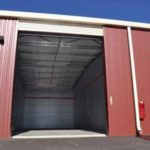There may be times when your heavy equipment might need to be stored for several months or years. Even if you are not using your machines for a few months or even the entire winter, there are precautions that you need to take in order to protect them and prevent damage.
Shall we learn about “How do you store heavy equipment”?
Weather Impact on Heavy Equipment:
Cold Weather Can Cause:
- Vital car fluids thicken, preventing the parts from functioning properly.
- Battery discharge makes it more difficult to turn on devices.
- The tire pressure ends up decreasing (one PSI for every -17 degrees Celsius)
Hot Weather Can Cause:
- The mechanical parts end up wearing down due to stress which leads to premature breakage
- Rubber parts break apart.
- The batteries end up evaporating because of the water in them.
Preparing Heavy Equipment for Storage: How Do You Store Heavy Equipment?
When the time comes you have to keep your machines idle, then comes the time when you have to consider how to protect these heavy types of machinery. Whether it’s a new season or the end of a project, you need to properly store your equipment to prevent damage, costly repairs, and project delays.
Here are a few tips just for you and your equipment:
Implement Lock Out:
You need to make sure you implement a lock-out procedure. Moreover, this involves disconnecting the equipment from its power source and it ensures that all controls are in the neutral position. Additionally, this prevents accidental startup and unauthorized use.
Fluid Maintenance:
It is crucial to prevent damage during storage through proper fluid maintenance. Similarly, you need to change the oil and other fluids according to the manufacturer’s recommendations. Stagnant fluids can degrade over time, leading to corrosion and reduced performance.
Tire Care:
Take care of your equipment tire before you store them. Furthermore, inflate the tires to the manufacturer’s recommended pressure to prevent flat spots from developing during extended periods of inactivity.
Clean and Protect:
Thoroughly clean your heavy equipment before storage. Remove dirt, debris, and any corrosive materials that might have accumulated during use. Similarly, apply a protective coating, such as wax or rust inhibitor.
Safe Shelter:
One of the main aspects is that choosing the right location is vital for maintaining your equipment condition. Moreover, whenever it is possible, you should store your heavy machinery indoors or under a weatherproof shelter to shield it from the elements.
Regular Inspection:
Even during storage, perform periodic inspections of your equipment. Moreover, check for any signs of damage, moisture buildup, or pest infestations. Hence, it’s important to address any issues promptly to prevent them from escalating.
Proper Documentation:
Maintain accurate records of the maintenance and storage procedures you’ve followed. Therefore, this documentation will serve as a reference when you’re ready to bring your equipment back into operation.
Storage Options for Heavy Machinery:
There are so many options out there that are available for you, you just need to know which one to go for. Here are some benefits of the three main types of storage options for your heavy equipment:
Construction Equipment Storage:
- This comes with a high level of security which protects your equipment from unauthorized access.
- Storing your equipment indoors can prevent it from getting exposed to harsh weather conditions.
- There are security measures taken such as surveillance cameras, alarms, and locks to deter theft.
Construction Materials Storage:
- There is 95% in-house network operation.
- Scheduled and guaranteed departures
- National and Multi Nation Gateway
Landscaper Equipment and Materials Storage:
- Keep materials in storage with proper organization tools, minimizing clutter.
- Secure storage is 100% guaranteed.
- Storing materials and equipment in bulk.







